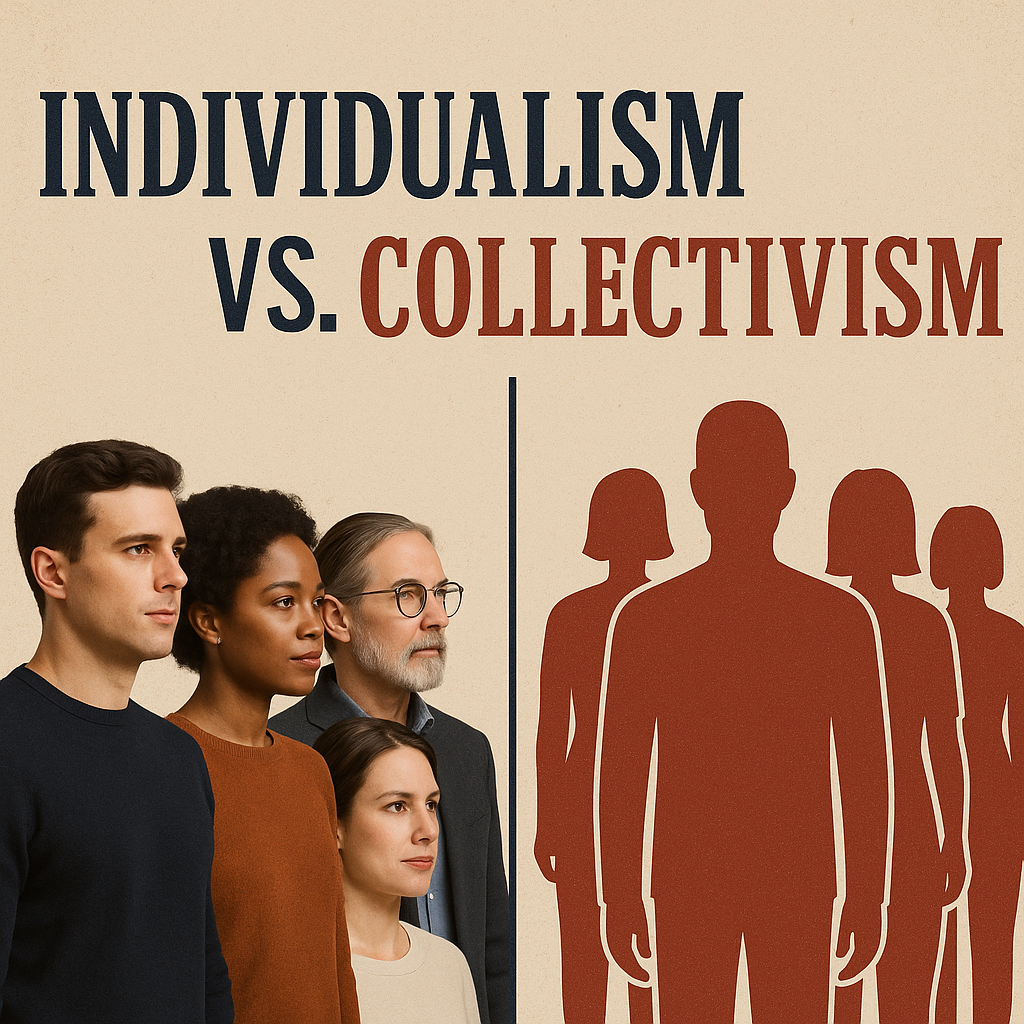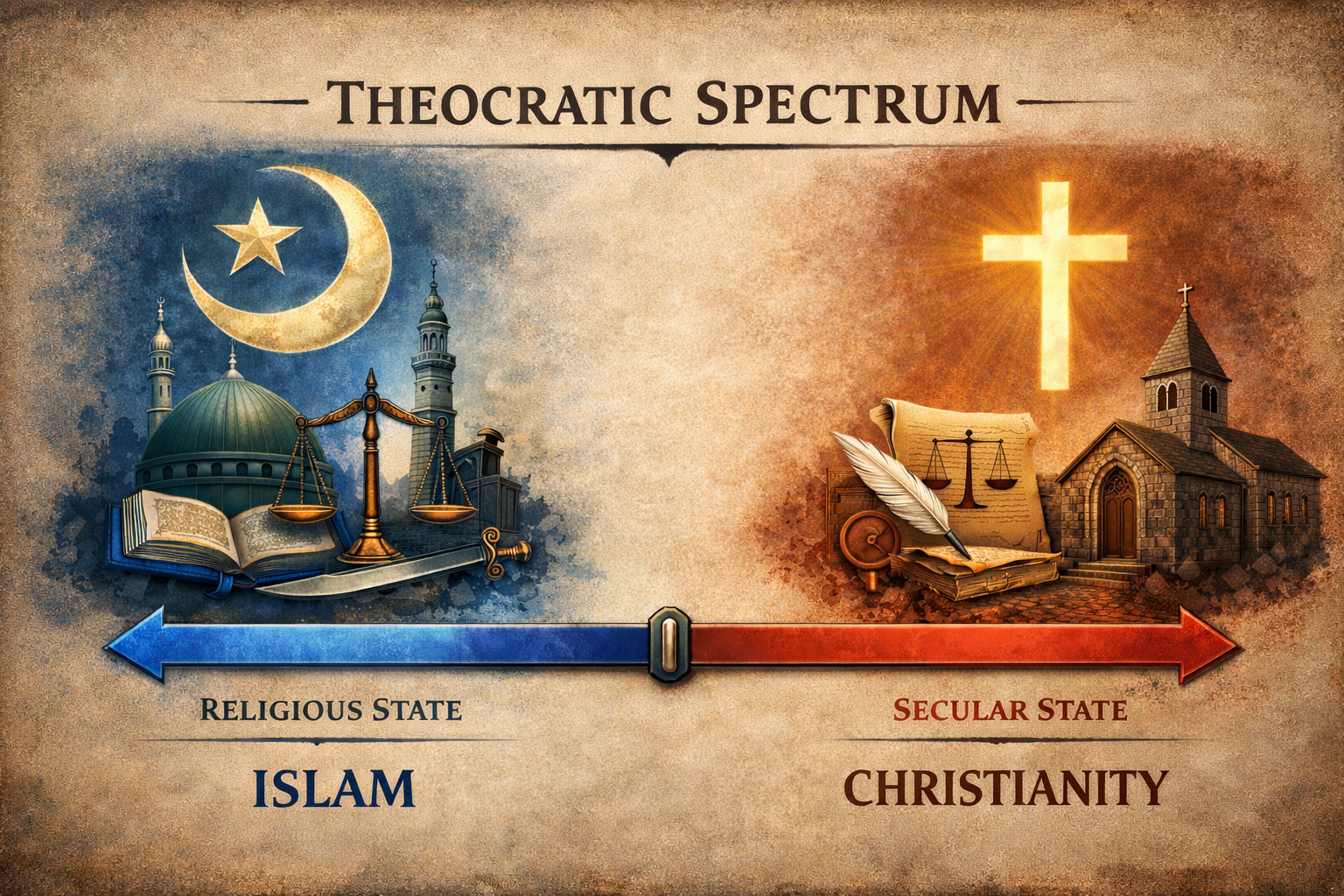Forget Left vs. Right. That’s the puppet show meant to distract you. While the talking heads squabble about red states and blue states, the real fault line in American politics lies deeper—and it cuts clean: individualism versus collectivism.
This is not a spectrum. It’s a fork in the road. One path honors the dignity of the individual, the sanctity of private property, and the moral power of voluntary cooperation. The other drags us down into the grey sludge of coerced unity, where every action must be authorized, and every success taxed, redistributed, or punished.
Voluntary Cooperation Built America
Before Washington metastasized into a central planner’s paradise, America thrived on voluntary greatness. Wealth was not hoarded; it was invested in the very bones of civilization—by choice.
The railroads weren’t born in the basement of a federal agency. They were the product of men like Cornelius Vanderbilt and James J. Hill, who gambled their fortunes and reputations to stitch this vast land together with steel. Hill, the “Empire Builder,” famously refused federal subsidies for his Great Northern Railway. Why? Because he knew dependence breeds inefficiency—and corruption.
Museums and libraries? Don’t thank a government grant. Thank Andrew Carnegie. Between 1883 and 1929, Carnegie’s philanthropy built more than 2,500 libraries across the English-speaking world, over 1,600 of them in the United States. Not because he was told to—but because he believed in the power of knowledge and personal responsibility.
The same goes for medical institutions, symphony halls, and universities. Johns Hopkins, Leland Stanford, Ezra Cornell—all men who built monuments to human potential out of the fruit of their own labor. Not a welfare program in sight.
This was Americanism: free men building free institutions. Not for votes, but for legacy. Not by mandate, but by mission.
Collectivism: The Coercion of “Caring”
“Collectivism promises shared prosperity, but always delivers managed decline. It cannot permit real excellence—because real excellence is unequal.”
Now look around. The government taxes your income, prints your money into oblivion, then tells you what roads to drive on, what schools to send your kids to, what “inclusive” art you must pay for, and which causes are “essential.” This isn’t charity. It’s extraction.
You don’t get to say no. Try withholding your taxes to protest a war or a policy. You’ll find out real quick that the “social contract” was signed in disappearing ink—and only one party has a pen.
Collectivism promises shared prosperity, but always delivers managed decline. It cannot permit real excellence—because real excellence is unequal. And inequality, to the collectivist mind, is the ultimate sin. Even if it lifts all boats, it must be crushed.
But here’s the truth: you cannot uplift the poor by tearing down the productive. You cannot build a just society by dissolving the individual into a bureaucratic blob.
Central Planning vs. Local Genius
In an individualist society, people can still band together to build roads, defend cities, feed the hungry, or teach the young. But they do it based on value—not coercion. If a bridge needs building, the people who need it the most will find a way to get it done. That’s how towns were founded. That’s how the West was won.
But under collectivism, that bridge might go to a district where no one drives, simply because some desk-jockey in D.C. thinks it checks the right boxes. Or worse, because it buys votes.
Collectivism replaces the local with the distant, the earned with the entitled, and the real with the abstract. It’s why we have trillion-dollar budgets, million-dollar bathrooms, and thousand-dollar textbooks that no child reads.
The False Labels Are the Real Lie
Don’t fall for the party labels. Don’t be seduced by “moderates” who think we can strike a balance between liberty and theft. That’s like trying to find a compromise between self-defense and mugging.
The American way—the Founders’ way—is individualism. Not isolation. Not greed. Individualism is the only moral and sustainable system for a free people. It means we help because we choose to. We build because we believe in it. And we leave each man the right to rise—or fall—on his own terms.
In the end, the real political question is simple:
Do you believe in the individual—or in the collective?
Choose wisely.



